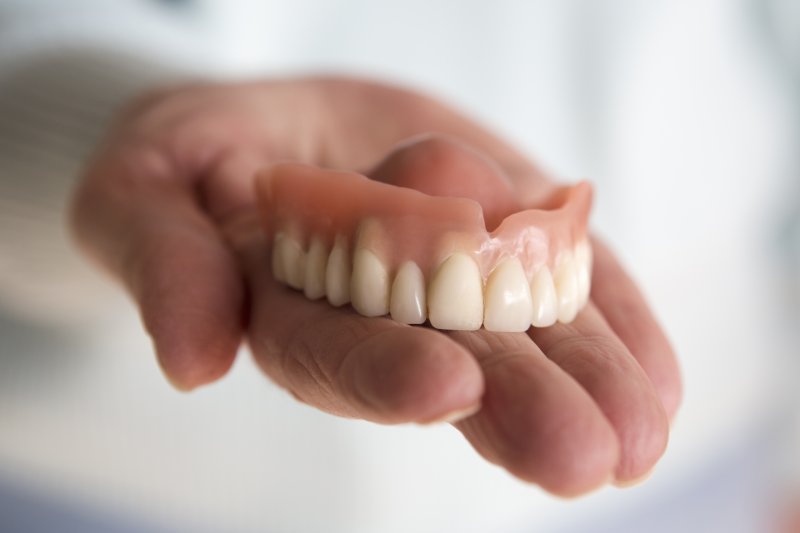
Wearing uncomfortable dentures can cause you to feel uncertain about how to move forward. Do you try and push through the “pain” in the hopes that things will improve over time? Do you attempt to fix your dentures yourself? Do you see your local dentist about the problem and let them determine which solution is best? If you want to avoid four potential complications associated with ill-fitting dentures, keep reading.
What Kinds of Problems Can Ill-Fitting Dentures Cause?
There are several problems patients can experience when dentures don’t fit properly:
- Chafing: Dentures that don’t fit correctly often slip, chafe, or fall out over time. As this occurs, your artificial teeth will rub against your gums, causing inflammation and irritation. You will notice more soreness and actual lesions forming on your soft oral tissues.
- Difficulty speaking: When dentures no longer remain firmly in place on your gums, they will begin to slip, making it challenging to speak clearly. This can negatively impact your personal and professional life.
- Feeling self-conscious: If you notice that your dentures slip when talking or eating, or they start to fall out, you may feel embarrassed, which can affect your self-esteem.
- Malnutrition: The inability to eat certain foods when living with ill-fitting dentures can take a toll on your diet. Softer, less nutritional options may be what you gravitate toward, but they lack the nutritional components you need.
Why is Seeing a Dentist Important for a Longer-Lasting, Pain-Free Smile?
The moment you notice that your dentures no longer fit comfortably, don’t wait to seek treatment. Calling to schedule an appointment with your dentist is the most effective way to address the issue of ill-fitting dentures.
Your dentist may only recommend a reline, which requires adding material to your denture so that it fits more comfortably and snugly against your gums. This is often recommended when changes to your facial shape occur.
It’s also possible that a replacement set of teeth is required, especially if damage is keeping your dentures from fitting or working properly.
Another option is switching to implant dentures. These longer-lasting posts keep teeth stable once they are affixed. You never need to worry about slippage again, so you can eat the foods you love, speak to others without slurring your words, and smile with absolute confidence.
No matter what kind of decision you and your dentist make, you will get to continue living life with a full set of teeth that look beautiful, feel great, and continue to function with ease.
About the Author
Dr. Mark Makram is an implant dentist who earned his dental degree at the State University of New York at Buffalo School of Dental Medicine in 1993. As a graduate of the Advanced Prosthetic and Surgical Program at Temple University and the Misch International Implant Institute, he is also a fellow of the International Congress of Oral Implantologists. Now with his own practice in Florida, he regularly treats patients suffering from tooth loss. If you currently wear dentures but want an alternative solution, schedule an appointment by visiting our website or calling (239) 513-9990.
